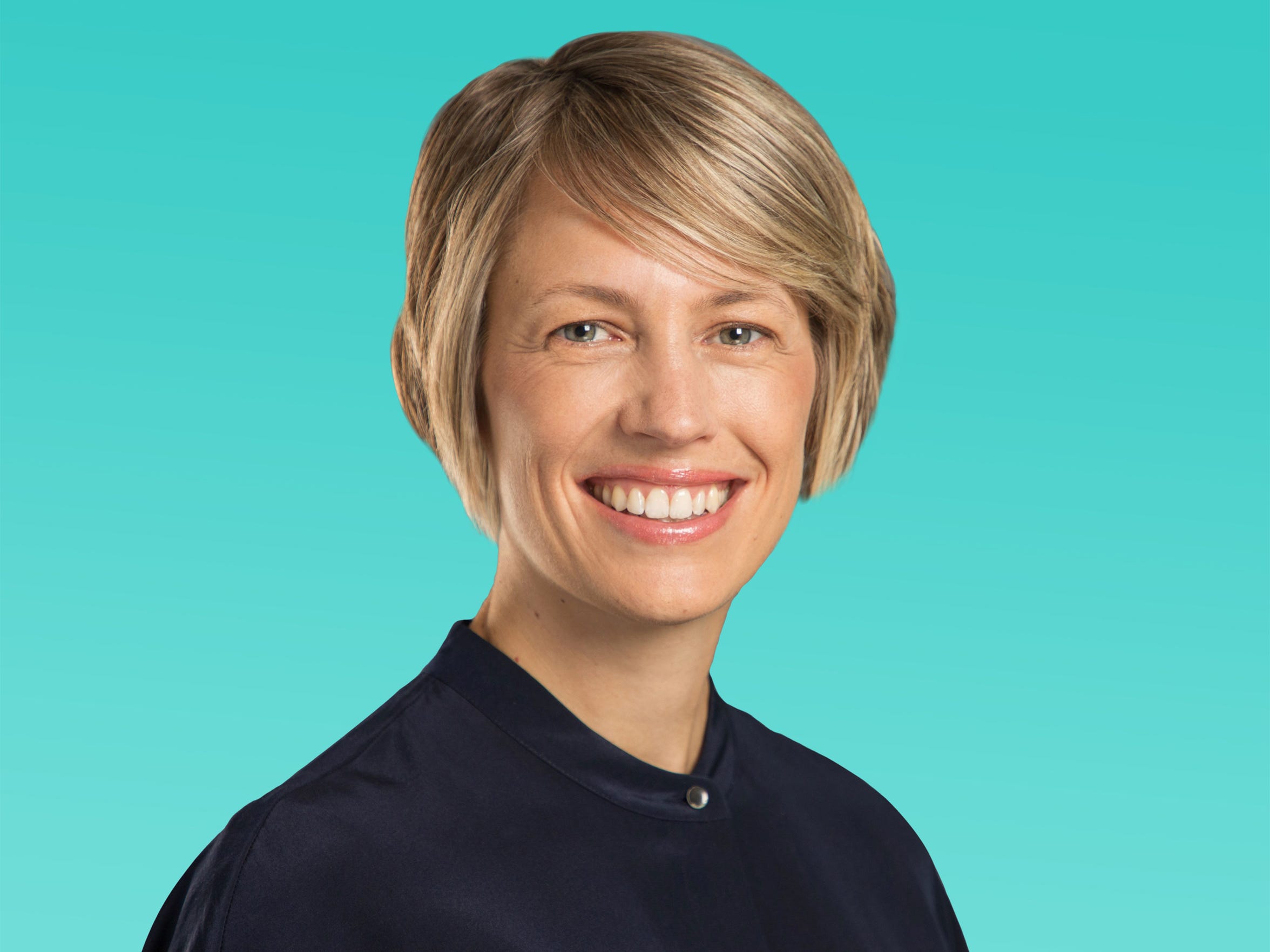
- TikTok is awaiting the approval of a deal with Oracle that could put an end to the months-long battle with the US government over the app’s Chinese ties and US presence.
- Pressure on the relationship between TikTok and its Beijing-based parent company, ByteDance, has led to questions over who will have control over the resulting US-based company. This power struggle seems to have been a reason why TikTok’s last CEO, Kevin Mayer, quit only three months into the job.
- Despite the fight at the top, TikTok’s day-to-day operations in the US have been led by Vanessa Pappas, who took over as interim head of TikTok after Mayer’s resignation.
- Pappas has not been named TikTok’s permanent CEO. But under Pappas, we could see a TikTok even more invested in its creators, and a focus on growing the app as a marketplace.
- Visit Business Insider’s homepage for more stories.
Vanessa Pappas may not yet be a high-wattage name in the tech industry — but she’s become the bonafide face of TikTok to its creator community and more than 100 million users.
On September 19, with a TikTok ban imminent and looming, Pappas appeared in a minute-long video docked at the top of the app’s “For You” page for its millions of its US users. She reassured users that TikTok was in the US for the “long run,” and publicly announced that TikTok had reached a deal with Oracle. That deal, which would give Oracle and Walmart a 20% stake in the company, has been publicly supported by President Donald Trump, but is still awaiting his official approval amid rumors that he may change his mind and reject the deal. It also needs approval from the Chinese government.
As Washington and Beijing continue to trade barbs, eyes will be on Pappas, TikTok’s acting CEO, to see how the company manages these rocky waters while maintaining its growth and energized American userbase.
It will be her first major challenge as CEO, a position she’s held for less than a month. But Pappas’ long tenure at the company, along with bonafides at YouTube, give us an idea of how she will keep TikTok’s ship upright as it weathers the threat of a ban. Pappas sees TikTok’s users as its main asset and will likely focus on growing the app’s influencer partnerships so it emerges on the other side a creator powerhouse, stronger than before.
Pappas took over as acting CEO after the sudden departure of Kevin Mayer, a longtime Disney executive made TikTok’s first CEO in an attempt to show the US government its commitment to being an American tech company.
But Mayer left TikTok after just three months, a small window for an outside executive to have an impact on the company, current employees told Business Insider. He cited "corporate structural changes" in his resignation letter and reports indicate he may have left after feeling boxed out of corporate-level decisions and acquisition negotiations.
Long before Mayer was named CEO in May 2020, Pappas was already in charge of the day-to-day operations for a significant portion of TikTok's global business. Pappas joined TikTok as its US general manager in December 2018 when the company's stateside operations were just four months old, and only shortly after ByteDance merged it with lip-syncing app Musical.ly.
Pappas has levied much of her focus during her tenure on creators and the platform's relationship with the user community. Her approach has proved successful as TikTok's userbase and popularity in the US has skyrocketed. TikTok has grown into a creator incubator powerhouse, rivaling established communities found on Instagram and YouTube. It's something Pappas has been building toward for more than a decade, during which she was responsible for putting together the literal playbook on making videos for YouTube.
One of TikTok's longest-serving employees
Pappas' two-year tenure is one of the young company's longest, and Pappas has become somewhat of a stable figurehead for employees and onlookers alike. She hosts a weekly all-hands meeting for TikTok's more than 1,500 American employees. Months of rumors and headlines about TikTok's future in the US have also turned Pappas into a trusted voice of reason and reassurance among employees, according to a profile of the interim CEO in The Wall Street Journal.
Pappas may lack the name-recognition of some of her peers, but she's become a powerful leader in part because of the decade of experience she has dealing hands-on with online influencers and helping launch many of their careers.
Pappas, who grew up in Australia, entered the creator industry when she joined the video production company Next New Networks in 2007 as a director of programming. Networks that made professional-grade videos exclusively for the web had not yet taken off, and the company was behind early viral hits like Barely Political's "Crush on Obama" and served as a jumping-off point for YouTubers such as The Gregory Brothers and ThreadBanger.
But NNN was perhaps even better known for its unofficial creator playbook, a manual that taught budding YouTubers secrets to making videos for online consumption and how to game video platforms like YouTube just as it started letting creators make money off their content. The playbook was so successful that it reportedly played a massive part in YouTube's acquisition of NNN in 2011. The playbook, now the "YouTube Creator Playbook," appeared on YouTube's website less than six months later. Pappas, who transitioned into YouTube's head of audience development, led that project.
Pappas was with YouTube for more than seven years, and much of her work focused on creators and content. The New York Times credited Pappas' division at YouTube, called YouTube Next, with popularizing the term "creator" to refer to YouTube stars, and developing the Partner Program to make online video creation into a full-time job.
Since then, the online creator industry has expanded well beyond YouTube, and Pappas' background leading that rise could be a sign of what's to come for TikTok. The differences between YouTube and TikTok — its video length, its ad revenue, its brand partnerships — are barriers TikTok must traverse before it can achieve the same level of success.
Pappas has clearly been leading TikTok down that path. The company formed its first Creator Fund in July to help TikTok creators to make more money off of their videos, the first step toward making the app "a source of income." The company says it plans to distribute more than $1 billion over the next three years both in the US and globally.
The company has also rolled out Creator Marketplace, its own influencer-marketing platform that connects brands with creators directly through the app. Creators in the US like Charli D'Amelio (who recently joined competitor Triller) have already become established influencers and expanded into music, film and television, and other entertainment industries.
Still, Pappas has not yet been handed the reins for TikTok completely, and it remains unclear how long she would hold the title of interim CEO. The deal between ByteDance and US government has not been finalized, but the proposed bid would see a new US-headquartered TikTok entity in charge of the platform's global business, one that she would likely lead until a CEO is officially named. Instagram cofounder Kevin Systrom is so far the only other candidate known to potentially take over as CEO.
Until then, Pappas will remain in the CEO's seat, steering TikTok through a tumultuous period while focusing on the creators that made the app so popular to millions of users.

